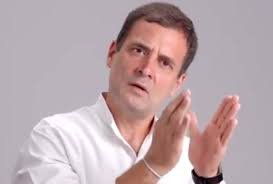Days after the US commented on the disqualification of Indian MP Rahul Gandhi, Germany has also reacted. The German Foreign Ministry issued a statement saying that “fundamental democratic principles” should apply in the case of the Congress leader’s disqualification.
A ministry spokesperson said the Dutch government had “taken note” of the Indian court’s decision and subsequently suspended their “parliamentary mandate”.
“We have taken note of the prima facie ruling against Indian opposition leader Rahul Gandhi, as well as the suspension of his parliamentary mandate. To the best of our knowledge, Mr. Gandhi is in a position to appeal against the decision,” the spokesperson said.
The ministry said, “It will then be clear whether this decision will stand and whether there is any ground for suspension of his mandate. We expect that the norms of judicial independence and fundamental democratic principles will apply equally to the proceedings against Rahul Gandhi.” Will be.”
Notably, earlier this week, the US State Department issued a statement saying Washington was ‘looking into’ the matter while issuing exhortations on ‘democratic values’ to New Delhi.
Vedanta said, “Respect for the rule of law and judicial independence is the cornerstone of any democracy. We are pursuing Mr. Gandhi’s case in the Indian courts and we express our solidarity with the Government of India on our shared commitment to democratic values, including freedom of expression.” attached.” Patel, Principal Deputy Spokesperson for the US State Department.
The US statements were not welcomed as netizens slammed the Biden administration for trying to unnecessarily interfere in India’s internal politics.
What happened to Rahul Gandhi?
Last week, a city court in the western Indian state of Gujarat convicted the leader of the Indian National Congress (INC) in a criminal defamation case for his alleged ‘Modi surname’ remark.
The court sentenced Gandhi to two years in jail, while imposing a fine of 15,000 rupees ($183) under sections 499 (defamation), 500 (punishment for defamation) of the Indian Penal Code (IPC).
Following an appeal, his sentence was suspended and bail was granted within 30 days to file an appeal against the sentence. However, the very next day, the Indian Parliament disqualified the Indian MP from Wayanad – a district in the southern Indian state of Kerala.

